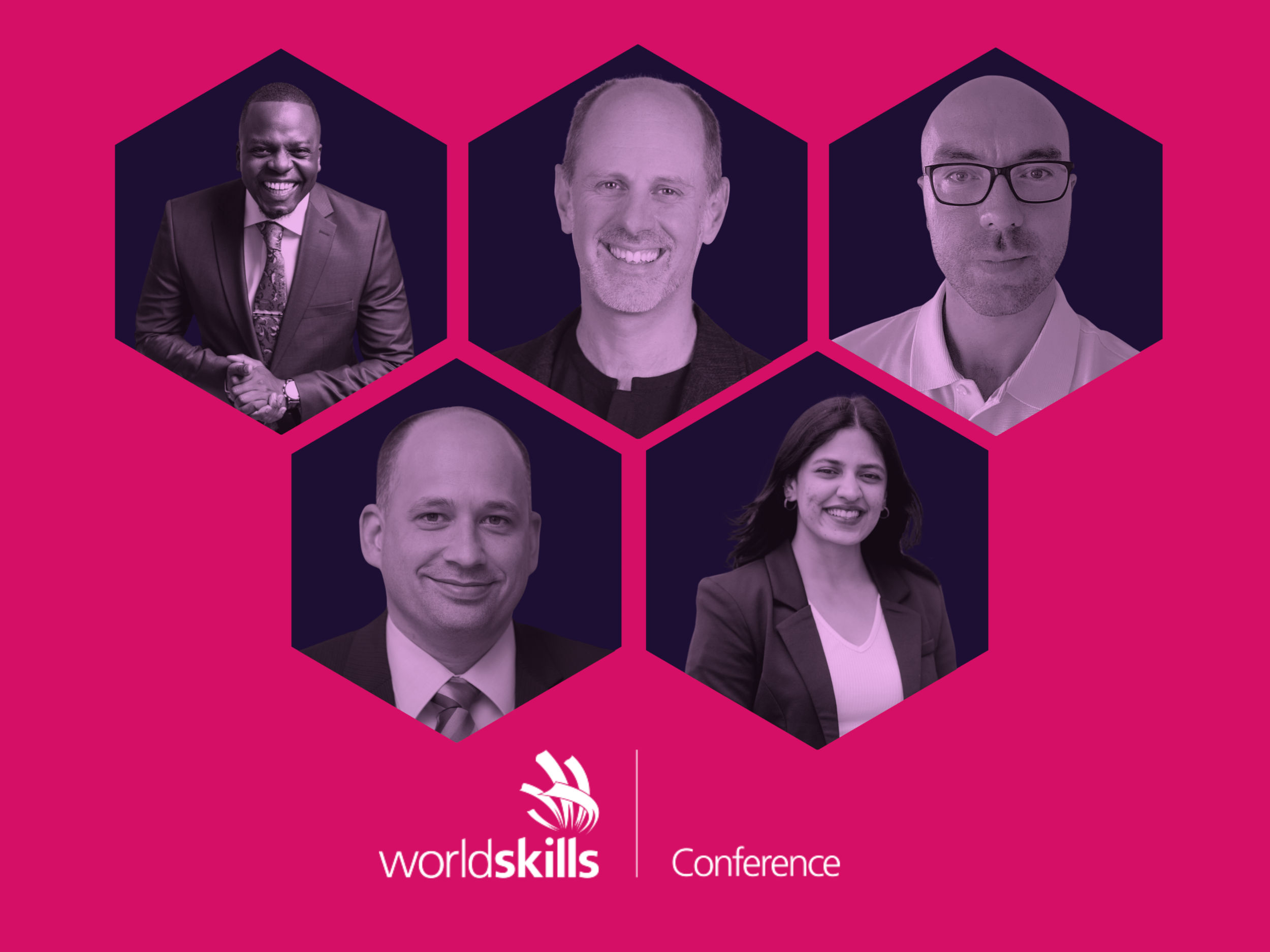As Artificial Intelligence (AI) continues to revolutionize the workplace at an unprecedented pace, education systems face the challenge of preparing students for a rapidly evolving future. On 12 September, WorldSkills Conference 2024 will gather global technology leaders to address a critical question: “How can Technical and Vocational Education and Training (TVET) keep pace with industry advancements and equip young people with the skills they need for an AI-driven world?”
Award-winning journalist Georgie Ndirangu will moderate a panel featuring insights from four distinguished experts:
- Mike Haley, Senior Vice President Research, Autodesk
- Oliver Niese, Head of Digital Business Festo and Board Member Festo Didactic
- Mirek Pospíšil, Head of Public Policy France, Senior Lead Manager EU Public Policy and Government Affairs, LinkedIn
- Shweta Ratanpura, WorldSkills Champions Trust representative for Asia
The panel will discuss the latest AI developments in their respective fields and explore how these advancements will impact both work and learning. For example, in manufacturing, AI-powered predictive maintenance is reducing downtime and increasing efficiency. While in graphic design, AI tools are automating routine tasks allowing designers to focus on higher-level creative work. These shifts are creating new skill demands that TVET systems must address.
Mike Haley, representing global software and technology company Autodesk, brings a unique perspective to the panel. As a longstanding Global Partner of WorldSkills, Autodesk has been instrumental in bridging the gap between students, educators, and industry leaders worldwide.
Drawing on his experience as Senior Vice President of Autodesk Research, Haley emphasizes the transformative potential of AI in design and manufacturing. He says, “At Autodesk, we see AI as a powerful tool for augmenting human creativity and problem-solving abilities. AI is enabling designers to tackle complex real-world challenges with unprecedented efficiency, including climate change and sustainable design. We view AI not as a replacement for human creativity but enhancing it and making advanced design capabilities accessible to more people.”
Haley also highlights the importance of adapting education to this new reality. He says, “As AI becomes integral across the industries that we serve, we must all rethink how we approach education and skills development for the next generation of Design and Make leaders.”
His hope is that this session and WorldSkills Conference 2024 more broadly, will spark much-needed conversations about how students, educators, and industry can work together to develop personalized learning experiences and break down barriers to access. He explains, “The key is to not only foster a mindset of lifelong learning; we must also increase collaboration across industry and academia to help young people pursuing a wide range of career paths get the skills they need before entering a rapidly evolving workforce.”
Shweta Ratanpura will bring the voice of youth to the panel, sharing her insights on AI for equitable access to skills. As the first woman to win a WorldSkills Medal for India and an active advocate for equitable access to skills, Shweta believes AI offers a significant opportunity for marginalized individuals outside established education systems.
She states, “AI provides us with the chance to deliver accessible education to millions by overcoming barriers related to language, culture, geography, and time. Creating personalized learning programs will become more feasible with AI.” She adds, “However, access to technology is not equal, so we need to consider ways to develop fairer technology infrastructure to ensure it’s not just the privileged few who benefit from this mode of learning.”
Educators attending the session will gain valuable insights into emerging skill requirements across industries, helping to align curriculum with real-world needs. Industry leaders will learn about innovative approaches to workforce development and potential partnerships with educational institutions. Policymakers will benefit from understanding the challenges and opportunities in preparing a workforce for an AI-driven economy, informing future policy decisions.
By bringing together perspectives from leading technology companies and skilled professionals, this session at WorldSkills Conference 2024 aims to chart a course for a more adaptive and responsive education system.
Whether you are an educator, industry leader, policymaker, or skilled professional passionate about the future of work and learning, join us on 12 September for expert insights that will guide your decision-making in this rapidly evolving landscape.
Join the Conference as we shape the future of TVET. Find out more about registration, speakers, and the sessions.

